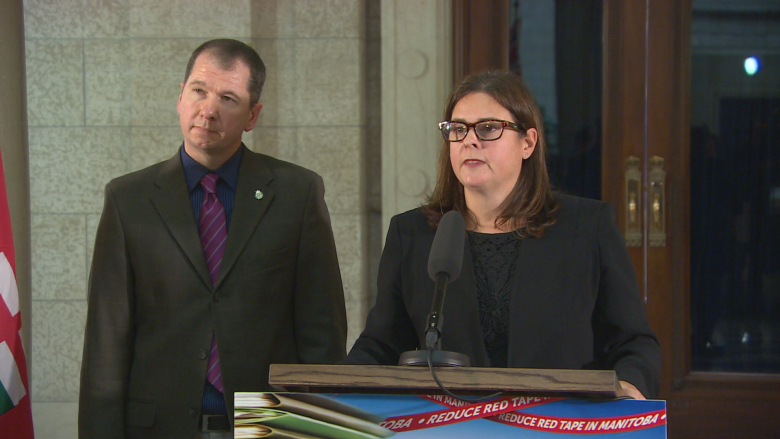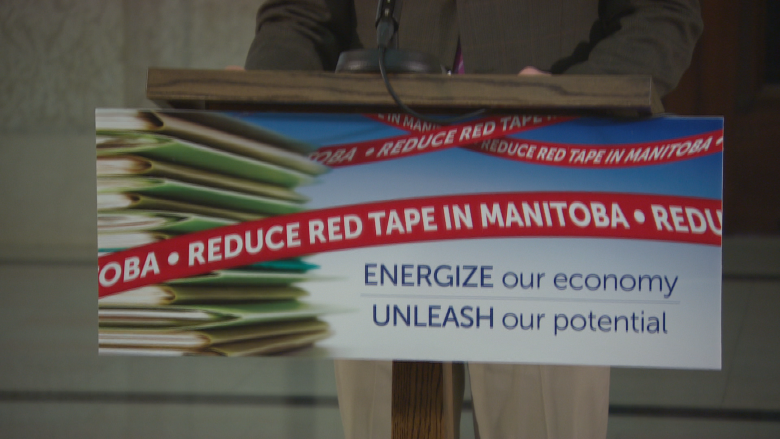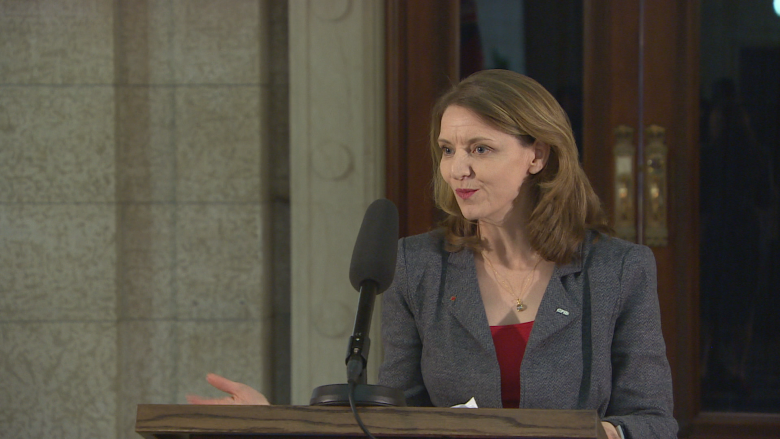Manitoba government vows to slash red tape
Businesses may soon have fewer bureaucratic hoops to jump through in Manitoba.
The Progressive Conservative government announced Monday it plans to cut red tape through new legislation to "reduce the burden of regulatory requirements," thereby benefiting local governments, non-profit organizations and businesses, deputy premier and Justice Minister Heather Stefanson said in a statement.
Barriers and long wait times continue to get in the way of Manitobans and businesses accessing services they need, Stefanson said.
The province is proposing new legislation that would force government to get rid of a regulatory requirement each time a similar "administrative burden" is implemented, Stefanson said. This "one-for-one" rule, designed to reduce the growth of regulatory requirements, will be boosted to an even more severe two-for-one system until 2021 to help get the ball rolling, Stefanson said.
- ANALYSIS | Brian Pallister's government begins to show true colours
Laura Jones, executive vice-president of the Canadian Federation of Independent Business, said the move makes Manitoba the first province in Canada to adopt such strict red tape reduction policy.
British Columbia has been working under a similar yet less aggressive system since 2001, she said. In that time, the B.C. government states it has reduced regulatory requirements by 47 per cent.
The Harper government legislated a one-for-one rule at the federal level in 2015 but "on a much narrower set of rules than Manitoba is proposing," Jones said.
'Tired of giving Manitoba Fs'
A shift to a one-to-one system will reduce pressure on small business owners who say they are frustrated and drowning in red tape, Jones said.
"We at CFIB have gotten kind of tired of giving Manitoba Fs every year on our red tape report card, and I think today's announcement really catapults you from one of Canada's red tape laggards to a red tape cutting leader," Jones said, adding excessive regulation "suffocates entrepreneurship" and stifles job creation.
Manitoba business owners were the least confident of all in the ability of their provincial government to cut red tape, the CFIB found in a recent survey of nearly 9,000 business owners across Canada.
The CFIB also estimates regulations across all three levels of government cost about $1.2 billion annually in Manitoba, "$360 million of which is considered red tape."
"Too many regulations is like having too many clothes in an overstuffed closet. What you're doing with your two rules out for every one rule in is your cleaning the closet in Manitoba … you're one-in-one-out is about keeping the closet clean."
1-for-1 challenge
The provincial government announcement about the one-for-one rule was made during the eighth annual Red Tape Awareness Week, the CFIB's annual challenge to all provinces to commit to more strict regulatory reductions. This year the organization challenged provinces to adopt the one-for-one commitment.
Shannon Martin, MLA for Morris, has been appointed co-chair of the province's red tape task force. He said this is the first year the Manitoba government has acknowledged Red Tape Awareness Week.
"This is part of our path to becoming the most improved province in all of Canada," he said. "Excessive regulation and unnecessary red tape create a drag on our economy, costing Manitoba's businesses hundreds of millions of dollars."
Announcement just for show: NDP
But finance critic James Allum said in practice, the new legislation will actually introduce delays into the regulatory review process, "creating more bureaucratic work rather than actually helping small businesses."
"Just like [Premier Brian] Pallister's so-called review of regulations in the 1990s, this announcement is for show, not about substance — there is no need for a government to legislate this rule," the NDP MLA for Fort Garry-Riverview said in a statement.
"By introducing such a law, the Pallister government is potentially hamstringing itself or any future government by forcing it to eliminate regulations merely for the sake of show."
A better way forward would be to create "smart competitive regulatory environments" along with targeted investments and job creation in select economic sectors, Allum said.
"This approach does not properly take into account its consequences and does not meet the needs of Manitoba workers, consumers or business owners," Allum said.




